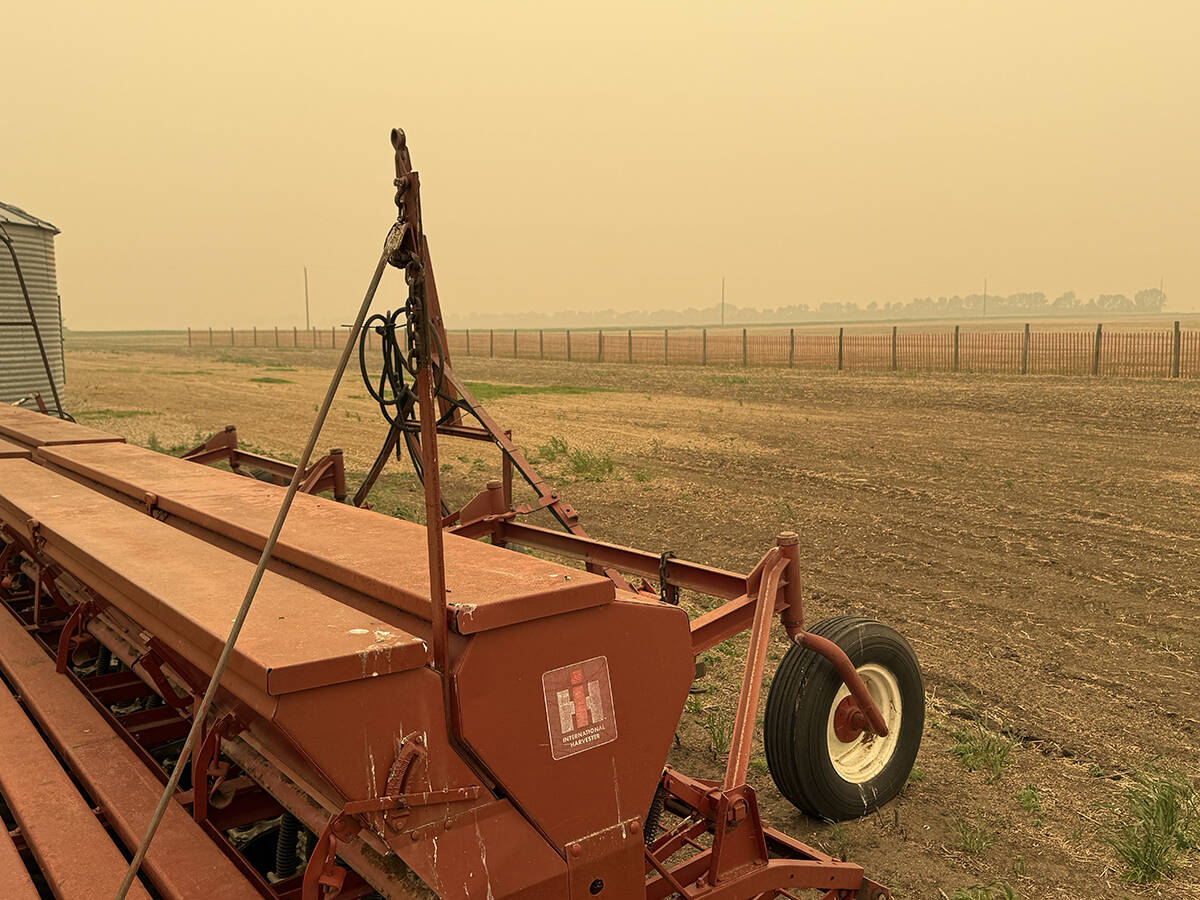GIMLI, Man. – Canada is the North American leader in farm product traceability.
However, even though some farmers oppose the move, American and Mexican agriculture state secretaries and commissioners say their jurisdictions plan to follow the same path.
“We have progressed in developing a culture of quality and food safety, but we want to do it better,” said Joel Avila Aguilar, agriculture minister for the Mexican state of Southern Baja California, while summing up the view of the Mexican delegation attending the Tri-National Agriculture Accord meeting in Gimli.
Read Also

Wildfires have unexpected upside this year
One farmer feels smoke from nearby wildfires shrouded the July skies and protected his crop from the sun’s burning rays, resulting in more seeds per pod and more pods per plant.
“That’s why we’re here.”
Minnesota agriculture commissioner Gene Hugoson said he is one of the American state officials pushing for more traceability requirements for farm products. He acknowledged some farmers don’t like the extra requirements, but called it a necessary development.
“Not everybody’s comfortable with that idea or perhaps doesn’t trust the government to be the keeper of some of those records,” Hugoson said in an interview.
“We’re fighting that battle on the U.S. side and as it relates to traceability, Canada is further ahead than the United States and that’s something some of us are trying to catch up with.”
Federal agriculture minister Gerry Ritz attended the latter part of the conference and reaffirmed his government’s commitment to traceability.
“The status quo is no longer good enough or secure enough,” he said.
The Tri-National Agricultural Accord is an organization that has met for 19 years. It attempts to give agricultural politicians and officials on a sub-federal level a chance to raise concerns and find common interests within the North American Free Trade Agreement area.
Agriculture officials, ministers and commissioners from Manitoba, Saskatchewan, Alberta, three other provinces, five Mexican states and seven U.S. states attended the meeting, which is the first time it has been held in Manitoba.
A key topic for Canadian officials but one little known by their American counterparts was the recent imposition of country-of-origin labelling in the United States.
Manitoba agriculture minister Rosann Wowchuk said in an interview the prairie agriculture ministers and officials made a point of talking about COOL because it is ignored south of the border.
“There was quite a lack of understanding from some of the people in the United States and secretaries and commissioners with regard to the impact of COOL,” she said.
“They said COOL was supposed to be about fruits and vegetables and safety and there was no reason pork wasn’t coming in. They do not appear to be aware of what is happening.”
Officials also discussed climate change, the impact of the recession on agriculture, H1N1 and pesticide standardization.















